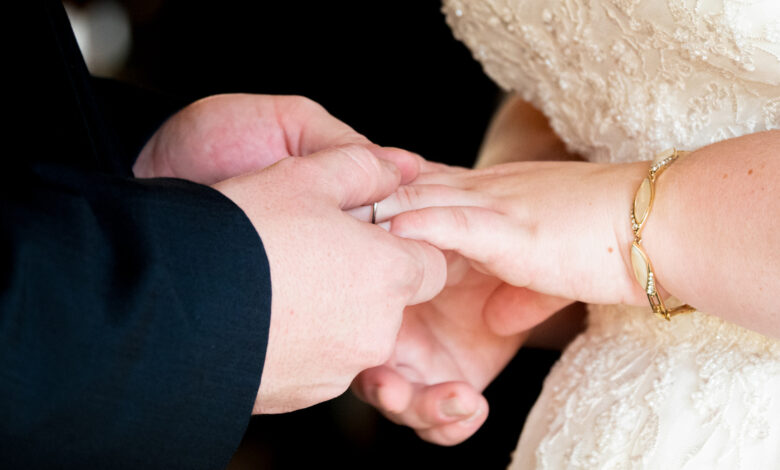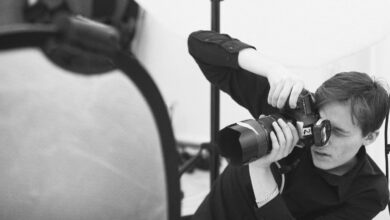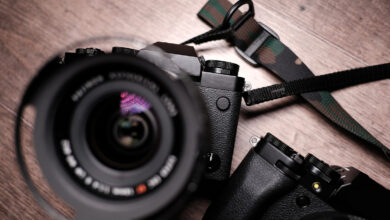Vital Photography Lessons I’ve Learned from Shooting Weddings

For some very good reasons, I have decided to stop photographing weddings. There are many lessons I learned from the challenges of weddings that may be useful to all photographers.
Wedding Photography Is Not a Great Place to Start Professionally
Many photographers see weddings as a stepping stone into the world of professional photography. However, it’s possibly one of the hardest genres to do well. You need a wide range of skills in different genres, perfect camera control in each, an understanding of your system’s strengths and weaknesses, and the ability to create compelling images that, nonetheless, have your own style. If you get it wrong, you have ruined the most important day of two people’s lives.
I’ve seen a lot of wedding photographers come and go because their photography work was just not good enough or they didn’t have the personal wherewithal to meet the needs of the clients or run a business. Before asking for money from clients, you need to have your work assessed by another professional to find out if it is good enough – not by your Mom or partner, though; they will only say nice things.
Coping With Stressful Photoshoots
Many photographers find weddings stressful. All established and successful photographers worry that their images are not good enough. On top of that, there is the expectation that the photographer will deliver every shot that the happy couple expects. There’s also the nagging concern that you have the right amount of equipment and haven’t left anything behind.
Although those doubts cross my mind, I’ve learned not to let them bother me. I’ve been doing this long enough to realize what is expected. I know what equipment I need. I regularly practice with my cameras, so I know what their capabilities are too. Then, I have settings applied to custom modes, so the cameras are ready for any circumstance with a quick turn of the dial.
Talking of equipment, you won’t be the only person who is stressed. I always carry a couple of pocket packets of tissues with me. These are for mopping the face of a tearful child with a runny nose, the sweaty forehead of a middle-aged man, and happy mothers’, fathers’, grooms’, and brides’ tears. They are also useful for cleaning spilled wine. Handy hint: good quality tissues don’t break up when they get wet.

How Well Do You Know Your Camera?
Photography and operating equipment must become second nature, so you are not dithering on the day and stressed about whether you will get the shot. Can you put your finger on the menu button without looking? Do you remember how each of your custom modes is set? Do you know what shutter speeds freeze and blur dancers’ movements? What is the maximum ISO you are happy to shoot at? At ISO 25,600 how far from your camera can a face be before definition is lost when you apply Lightroom’s noise reduction?
Proper Prior Planning Prevents Poor Performance
That’s a polite version of an old military adage, and it applies to most things in life. Just turning up on the day is not the way to do a wedding. I meet with the couple and sometimes their families, and I usually do a pre-wedding shoot too. I have a contract that I go through and get the clients to sign, as well as a form for them to fill in that tells me what they expect. You get some unusual requests – more than once I’ve been asked for relatives’ partners to be stood at the edge of group shots so they are more easily removed from the picture after an anticipated break-up.
Four days in advance of a wedding, I check and prepare all my equipment. Four days is long enough for me to replace faulty equipment if necessary.

What if My Equipment Fails?
Many worry that the camera, lens, or memory cards will fail. That doesn’t bother me. I’ve never had camera equipment fail during an event, and I carry spares. However, other photographers have suffered disasters.
I don’t have empirical data to back up this anecdotal evidence, but I know of one brand popular with wedding photographers whose cameras fail regularly and worryingly often. I’ve also met a photographer who had both memory cards in the camera fail; he lost the entire wedding shoot. Using reliable equipment and backing up your photos as soon as possible is essential.
Protect Your Lenses
At a recent wedding, I was shooting on a gravel driveway in front of a stately home. A group of children decided it would be fun to kick the stones, so consequently, I quickly covered the front element of my lenses with my palms just in time as the grit bounced off the back of my hands. At a previous event, I had a child grab the front of my lens with sticky fingers. Another photographer I know had the front element of his new lens sprayed with hair lacquer. I know it is a contentious issue, but I recommend protecting the front of the lens with a good-quality UV filter. I use Urth Plus+ filters because I can’t see any difference in my photos between them being on or off the camera.
The Best-Laid Schemes of Mice and Men Gang Aft Agley
Things go wrong. Last year, I was shooting a wedding at an 80-acre country estate. The wedding chapel was a converted boathouse down by the river. I had agreed to meet the bride in the car park next to the stately home. An employee of the estate sat with me in a four-wheel drive utility vehicle, where he said we would see them arrive; he was going to drive the bridal party and me to the chapel.
After a long wait, I got a panicked phone call asking where I was. The limousine had bypassed the car park and, unadvisedly, driven down the steep dirt track to the wedding venue. I was taken there at speed. The wedding otherwise ran smoothly. So, always have a phone with you but remember to put it on Do Not Disturb before the ceremony starts.
 Be Everybody’s Friend
Be Everybody’s Friend
When I shoot a wedding, I treat my clients and the wedding guests like friends that I want to help.
At a lot of weddings, there seems to be nobody coordinating the day. Often, the bride has organized everything. But on the big day, she has other things on her plate. So, sometimes I end up directing the event.
There are always little things that need to be sorted, and I find myself helping in different ways that are unrelated to photography. I have no objection to that, as it is in my interest to see the day pass by as painlessly as possible. I want the subjects of my photos to look happy and not stressed. Furthermore, a wedding day shoot can mean 11 or 12 hours of work, and there are big lulls between photography sessions that can become boring. Helping the wedding party breaks the monotony.
What Do I Do About Others With Cameras?
Other people like taking photos at weddings, especially group shots. I’ve seen some professional photographers deliberately get in the way of those doing that, but I do the opposite and invite others to take their snaps after I have taken mine. It doesn’t lessen my work, and I prefer to be seen as friendly and be remembered for future events.
To Be Continued
So you have done all the preparation and taken thousands of photos. So what comes next? The hard work! That follows in my next article.
Do you photograph weddings or events? Are you successful at it? Is it something you want to try? Is it something you attempted and gave up? Let’s hear your thoughts about the preparation and shooting the wedding in the comments.




